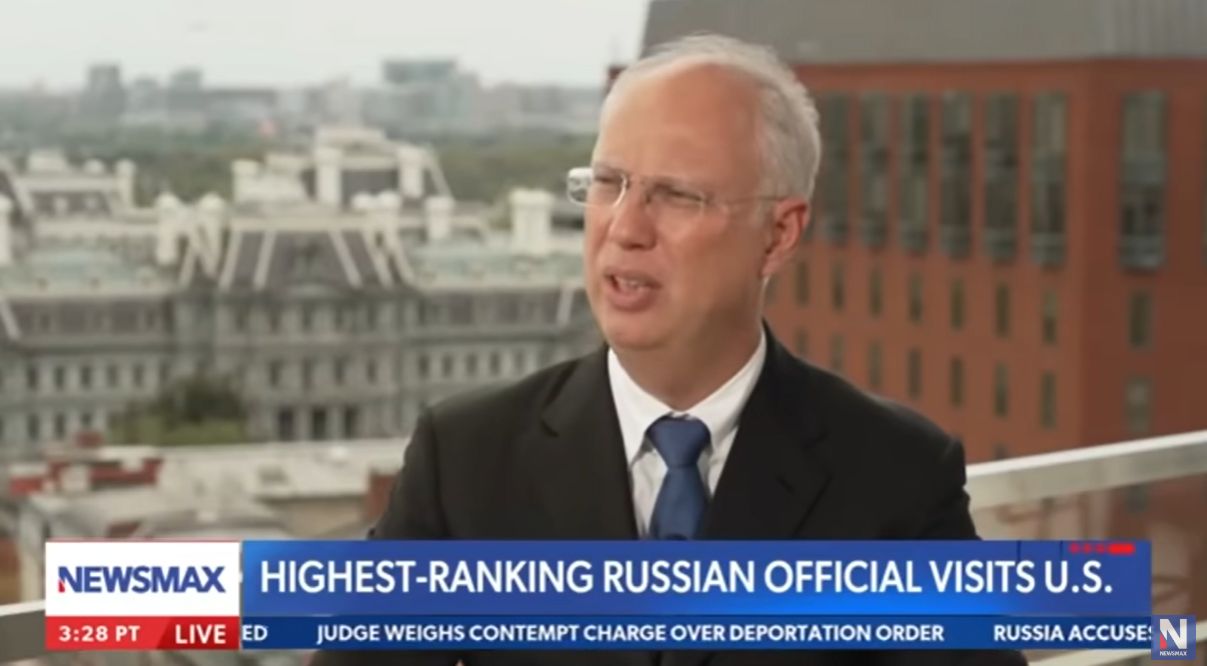In the first high-level Russian visit to the United States since Russia's full-blown invasion of Ukraine in 2022, Putin's investment envoy presented softer negotiating positions on American television that directly contradict the Kremlin's actual stance.
According to the US-based Institute for the Study of War (ISW), this apparent attempt to mislead Western audiences comes as US officials warn they may implement additional sanctions if Russia continues to drag out peace talks.
Kirill Dmitriev, CEO of the Russian Direct Investment Fund (RDIF), made several statements during interviews with Fox News and Newsmax on 3 April that significantly diverge from official Russian positions, creating what ISW describes as a deceptive parallel negotiating track apparently aimed at American audiences.
"The Kremlin's negotiating position has not changed despite Dmitriev's attempts to soften and deflect from Moscow's demands, and Dmitriev is attempting to use the promise of financial benefits to distract from the Kremlin's continued intransigence in negotiations about Ukraine," ISW analysts concluded in their April 4 assessment.
Dmitriev's Washington mission
Dmitriev's visit to Washington marked a significant diplomatic development – the first high-level Russian visit to the United States since Moscow launched its full-scale invasion of Ukraine in February 2022. The Trump administration granted a special travel license to Dmitriev, who remains under US sanctions, specifically to enable these talks.
During his two-day visit on April 2-3, Dmitriev met with Steve Witkoff, President Trump's special envoy for Ukraine-Russia negotiations, and Secretary of State Marco Rubio. Witkoff had previously met with Putin in Moscow last month as part of President Trump's push for a ceasefire and peace deal.
Beyond discussing ceasefire terms, Dmitriev promoted potential economic cooperation between Russia and the US. He claimed Russia is ready to collaborate with the United States on projects involving the Arctic, rare earth minerals, and liquified natural gas (LNG), attempting to sell Russia as an attractive market for American investment. This economic focus appears designed to appeal to the Trump administration's business-oriented approach to foreign policy.
Key contradictions in Dmitriev's statements
The most striking contradiction came when Dmitriev claimed Russia "is not asking for lifting of sanctions" and "not making any preconditions for specific sanction relief" regarding ceasefire negotiations. This directly contradicts the Kremlin's explicit demands for sanctions relief in late February for implementing even the previously agreed Black Sea ceasefire, when it requested sanctions relief for Rosselkhozbank, Russia's agricultural bank.
Dmitriev also suggested that "some security guarantees may be possible" for Ukraine, contradicting ISW's assessment that Putin will not accept Western-backed security guarantees because they would represent a major concession from Russia's maximalist demands for Ukraine.
These demands include recognizing Russian sovereignty over occupied Ukrainian territories, rejecting Western peacekeepers, establishing buffer and demilitarized zones, dismantling Ukraine's government, ensuring neutrality and abandoning NATO aspirations, halting Western arms supplies, and delaying any peace settlement until at least 2026.
Meeting with US officials
Following his media appearances, Dmitriev met with Secretary of State Marco Rubio on 4 April. Rubio warned that the US is closely monitoring Russia's actions and would consider implementing additional sanctions if Russia proves to be "unserious" about negotiations.
This wasn't Dmitriev's first significant diplomatic mission. In February, Bloomberg reported that Dmitriev attended US-Russia talks in Saudi Arabia that excluded Ukrainian representatives, raising concerns in Kyiv about potential deals being made without Ukraine's input. Ukrainian President Volodymyr Zelenskyy rejected the legitimacy of these talks, emphasizing that Ukraine must be directly involved in any negotiations about its future.
Financial promises as diplomatic cover
ISW assesses that Dmitriev's presentation of Russia's interests in Ukraine as "predominantly economic and financial" is "disingenuous." The analysis notes that Kremlin officials consistently demand addressing what they call the "root causes" of the war — NATO's alleged violation of obligations not to expand eastward and Ukraine's alleged violations of Russian-speaking minorities' rights — as preconditions for any peace agreement.
Dmitriev, who has led the Russian sovereign wealth fund since 2011 and is considered close to Putin, has been under US sanctions since February 2022. His background as a Harvard Business School graduate and former Goldman Sachs employee makes him a strategic choice for communicating with Western business and political audiences.
The ISW concluded that Russia "is not genuinely interested in negotiations but is instead prolonging the negotiation process to extract concessions and maximize territorial gains, while it continues to pursue its maximalist ambitions of total Ukrainian capitulation."
This assessment came on the same day Russia launched a ballistic missile strike on Kryvyi Rih that killed at least 16 civilians, including children, demonstrating the gap between Russia's diplomatic messaging and its actions on the ground.
Meanwhile, UK Prime Minister Keir Starmer has argued that sanctions on Russia should be increased rather than weakened, saying Putin is "playing games" with peace talks while using sanctions relief demands as leverage. The Trump administration has reportedly drafted Russian sanctions relief proposals as part of its push for negotiations, creating tension with European allies who remain skeptical of Russia's intentions.

